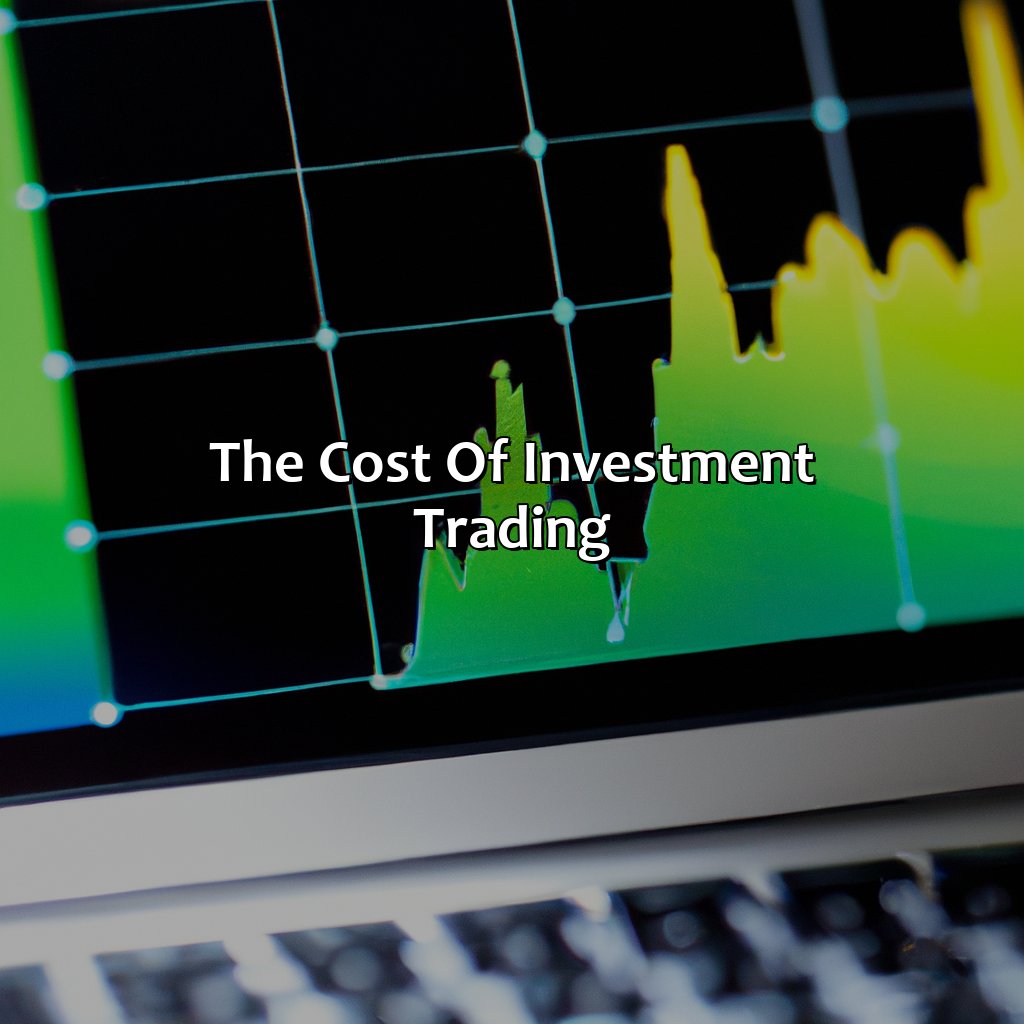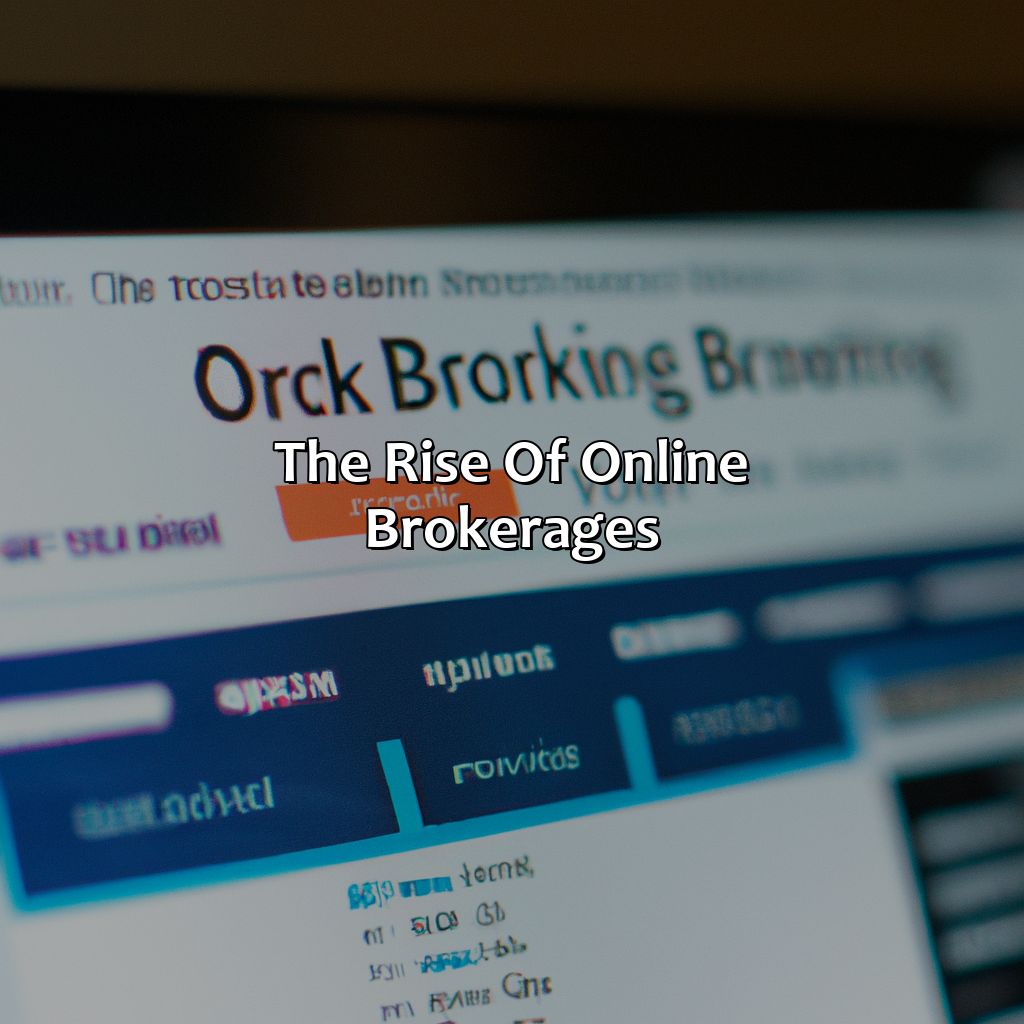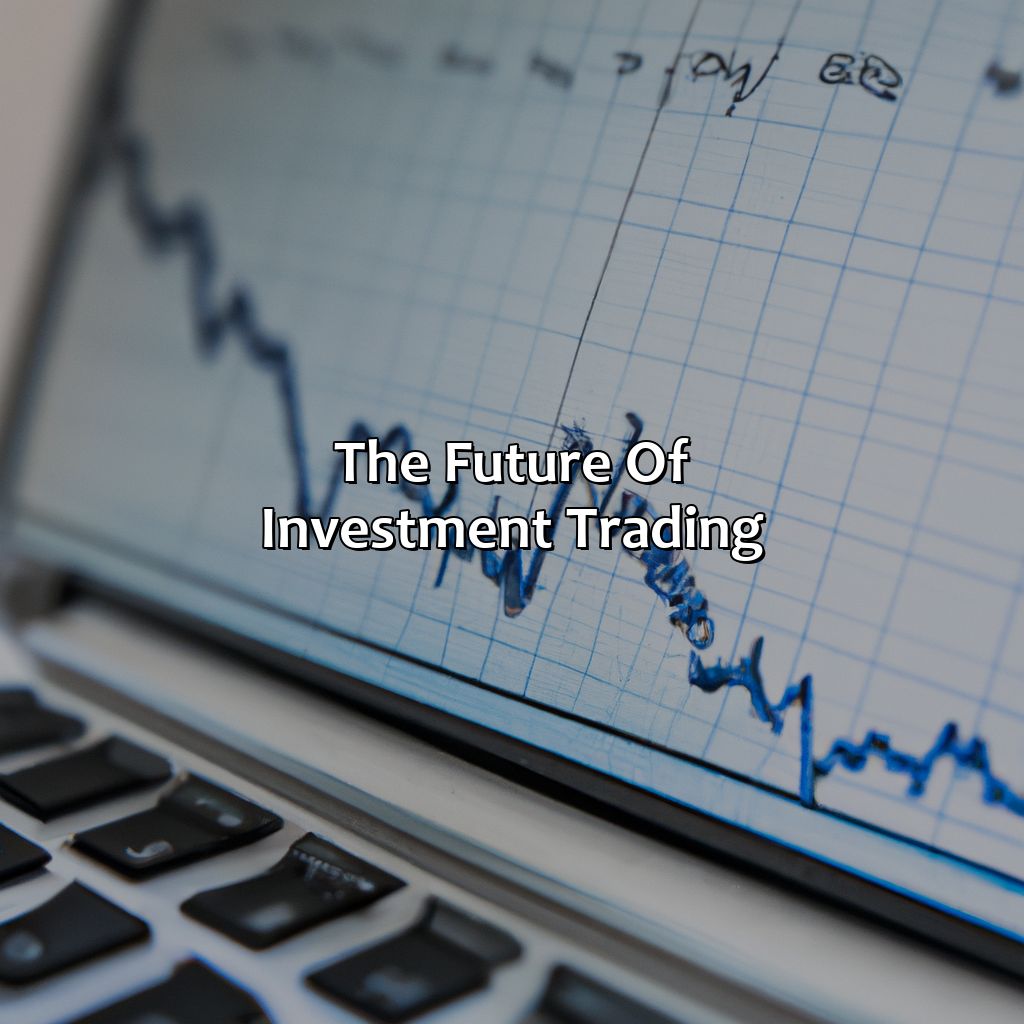Why Is Investment Trading Less Expensive Online?
Key takeaway:
- Online investment trading is less expensive due to lower overhead costs: Online brokerages do not have the same expenses as traditional brokerages, such as physical locations and trading floors, reducing their overhead costs. These savings are passed on to investors in the form of lower fees and charges.
- Automation in online investment trading provides cost savings: Online brokerages use automated systems to process trades, reducing the need for human intervention. This results in lower labor costs, which can be reflected in lower fees for investors.
- Increased competition in the online investment trading market benefits investors: The rise of online investment trading has led to increased competition among brokerages, resulting in lower fees and improved accessibility for investors. This trend is expected to continue, driving down costs and improving services for investors.
Investing in the stock market can be daunting, but you don’t have to spend a fortune to start. In this blog, you’ll learn why online trading is more cost-effective and what to consider when making your first investment.
The Cost of Investment Trading
Investment trading has become more affordable online due to various factors. Online brokers save on office space, utility bills, and staff salaries which translate to lower transaction costs. They also benefit from quick and easy access to a vast pool of clients worldwide. This has enabled them to offer competitive pricing. Additionally, advances in technology have made online trading more accessible, faster and transparent.
Furthermore, online brokers have eliminated the need for middlemen, which reduces transaction costs further. Trades can be executed seamlessly, and clients can monitor their portfolios in real-time, ensuring transparency. With low barriers to entry, online brokers have increased competition in the market, providing investors with a broader choice of trading platforms at competitive costs.
A study by Investopedia shows that online brokers charge a fraction of what traditional brick and mortar brokers charge for the same services. This is mainly due to their lower operating costs and efficient use of technology.

Image credits: retiregenz.com by Harry Duncun
Traditional Brokerage Models & Expenses
Why has online investment trading become cheaper? To get the answer, look at traditional brokerage models and expenses. Have a peek at commission fees and service charges. These two contribute to high traditional trading costs. That’s why many turn to online trading for a cost-effective solution.

Image credits: retiregenz.com by James Arnold
Commission Fees
In the world of trading, commission charges may vary depending on the brokerage models. However, online investment platforms are cheaper than traditional brokerage models.
- Online trading reduces expenses for various reasons such as no physical office space requirements.
- Low commission charges offered to clients in exchange for them performing their own trades without a broker’s help.
- Volume-based pricing structures provide cheap trading options to customers who trade frequently on online platforms.
Notably, online brokers can offer lower commission fees due to their modern Artificial Intelligence trading systems alongside efficient technology equipment. These features contribute substantially to the sophistication of trading tools and data analysis engines.
Pro Tip: Before committing to any financial institution, inquire about its pricing policies by asking some questions like expiry and token-related management fees, transaction fees, or margin lending rates between other things.
Why pay someone to make you money when you can just do it yourself online? Unless you’re trying to outsource responsibility for your losses, of course.
Service Charges
Investment Brokerage Cost Structure
The cost structure of traditional stockbrokers can vary and consist of different charges. These may include account maintenance fees, commissions on trades, and other miscellaneous fees like wire transfer costs, transaction fees, and regulatory fees.
Online brokers offer reduced expenses because they don’t have the overheads of physical branches to upkeep nor do they have to compensate for a physical broker’s commission. Instead, they charge a lower fee through their platform or offer free trading of certain listings. Rebates for frequent trading or setting up ETF portfolios can also lead to lower charges for online brokerage services.
To effectively save on service charges with either form of brokerage service – look at the overall expense ratio for ETFs (exchange traded funds), separate buying fees from selling costs and always maximize promotional offers.
Investment trading has gone from ‘old school’ to ‘cool school’, with online brokerages making traditional brokers wish they invested in the dot-com bubble.
The Rise of Online Brokerages
Why is investing trading cheaper online? To find out, explore the surge of online brokerages. Automated trading and lower overhead costs have a part to play. Take a glimpse into the techniques online brokerages are using to reduce costs. This makes investing more available for many people.

Image credits: retiregenz.com by Joel Arnold
Automated Trading
With the advancement of technology, investment trading has become more convenient and faster for people around the world. Here we discuss the benefits of using machines to trade stocks.
- Automated Trading takes away human emotions from making investment choices.
- It allows traders to work 24/7 constantly monitoring the market trends and reacting accordingly.
- Using a set of algorithms and built-in rules, Automated Trading can make quick decisions based on data analysis.
- It allows for higher efficiency and lower transaction costs than traditional trading methods by reducing labor expenses.
- Automated Trading is less prone to errors and reduces risks associated with human intervention in trades.
- The application of advance analytics, artificial intelligence, machine learning helps analyse unstructured data sets effectively which results in a better quality of decision-making.
Furthermore, Automated Trading is gaining increasing attention owing to its ability to handle high-frequency trades along with keeping pricing transparent.
History says computers were first introduced in US exchanges back in the 1970s. Over time Electronic Communications Networks (ECNs) began replacing telephone order execution system with computerized systems giving birth to automated trading mechanisms that ruled modern-day online trading platforms.
Online brokerages have proven that you can have your cake and eat it too- lower overhead costs and higher profits, all while wearing sweatpants.
Lower Overhead Costs
Thanks to the advent of online brokerages, investing is getting cheaper. The reason for this can be attributed to a reduction in administrative and operational burdens, resulting in less overhead costs. By using technology, brokerage firms can operate with minimal infrastructure and human labor while providing an efficient trading platform.
Moreover, the rise of e-trading has resulted in increased competition among brokerages, leading to lower fees being charged. To remain competitive, traditional brokerages have been forced to cut prices drastically. In this way, online brokers are contributing to the democratization of access to financial markets.
In addition, online brokers offer faster execution times and more informative analysis than their traditional counterparts. This can result in better investment decisions by traders or investors.
A true history that supports this can be seen in the emergence of Robinhood, one of the largest US-based online brokerage firms that disrupted the industry by offering zero-commission trades. The company’s success inspired other traditional brokerage firms like Charles Schwab and Fidelity to reduce their commission fees as well and integrate more digital tools into their platforms just as Robinhood did.
Say goodbye to pushy brokers and hello to the sweet sound of money saving with online investment trading.
Benefits of Online Investment Trading
Gain the rewards of online investment trading! Lower fees and easier access are key. Maximize your trading experience by reading these sections. They will give you the knowledge to understand how trading online can help you.

Image credits: retiregenz.com by Joel Woodhock
Lower Fees
In the world of investment trading, lower transaction costs are a prime concern for investors. The benefits of digital investments are ample, and one of them is that they have lower fees. Listed below are the reasons why online investment trading has reduced pricing.
- Lower Brokerage Fees: Online platforms usually offer more affordable brokerage fees compared to conventional brick-and-mortar firms.
- No Additional Costs: Unlike in-person transactions, internet trading does not require extra expenses such as travel, telephone calls, and office visits.
- Discounted Pricing: Many online investment brokers offer discounted prices on trades if you trade frequently or maintain a certain balance in your account.
- No Annual Account Fees: In addition to reducing transaction fees, online brokers usually do not charge an annual account fee compared to other traditional brokers.
- No Hidden Charges: Online traders typically disclose all of their pricing policies on their websites without any surprising hidden charges later.
- Fewer Human Errors: Traditional brokers rely on human intervention that can sometimes lead to errors, but online transactions are automated reducing errors significantly.
It’s crucial to be mindful that some digital trading platforms may charge extra fees for specialized services like margin lending or access to specialty trade products. Overall though, digital investment trading remains comparatively inexpensive when compared to traditional brokerage options.
Pro Tip – Always read through the charges and policies provided before finalizing your brokerage firm. It’s essential never to assume charges based on prior knowledge; instead, paying attention helps prevent unexpected high prices down the road.
Trading online: giving even the most agoraphobic individuals the chance to conquer the stock market in their pajamas.
Improved Accessibility
One of the significant advantages of online investment trading is the enhanced accessibility it provides to individual investors. By eliminating geographic restrictions, online platforms allow traders to invest in markets across the world without physical constraints. Moreover, by providing 24/7 access and mobile investment apps, online trading has revolutionized the way we invest today.
With desktops, smartphones and tablets becoming more common every day, it is no wonder that online investment trading has become integral for people seeking to enhance their investment portfolio. The convenience of trading from anywhere globally also allows investors to stay up-to-date with real-time market news and changes affecting their investments. This accessibility opens doors for novice investors looking for hands-on experience in managing finances actively.
In addition, low transaction fees on many online platforms encourage more people to enter a new market or make larger investments which were previously not viable for individual investors. Furthermore, features such as automated trading tools and real-time quotes permit traders to monitor investments closely and make quick decisions, adding efficiency in portfolio management.
Pro Tip – Investors should always be aware of risks associated with investing and exercise caution while making financial decisions; availing educational resources from these platforms can help build a good understanding of the market trends before attempting it.
Get ready for the future of investment trading: where robots make the trades and humans just make the coffee.
The Future of Investment Trading
Investment trading is cheaper online. To get a better grasp of this and the upcoming changes in traditional brokerage models, we must know what advantages online trading has. It’s essential to explore the future of investment trading with this in mind. How will these changes affect the future? We’ll examine that now.

Image credits: retiregenz.com by Yuval Duncun
Continued Growth of Online Trading
The surge of digital trading continues to increase, resulting in lower costs for investment trading. The online marketplace encourages competition and provides investors with greater access to information, empowering them to make informed decisions. This fosters a culture of risk-awareness, which reduces transaction fees and simplifies the investment process.
The widespread use of machine learning has enabled investors to take advantage of new technologies, such as algorithmic trading and robo-advisers. These systems use complex algorithms to analyze vast amounts of data and provide personalized advice that is tailor-made for each individual investor. This customized approach provides a significant cost-saving effect on operational expenses.
Moreover, the ever-increasing popularity of digital currencies has also contributed to the growth of online trading platforms. Most well-established companies like Robinhood are providing commission-free transactions or charging significantly lower commissions than traditional brokerages due to their online nature.
Interestingly, according to Forbes, “Robinhood raised $3.4 billion this week in financing which should keep them going for years.”
Changes in Traditional Brokerage Models
As technology advances, the investment trading industry is witnessing changes in the traditional brokerage models that have been dominating it for years. These changes are aimed at making investment trading less expensive and more accessible to a broader audience.
Most of the traditional brokerage models operate through physical offices located in strategic places and hire brokers to communicate with their clients. This model carries along infrastructure, rental costs, salaries for associates and other hidden expenses. Online brokerage models have emerged as an alternative that offers investors cheaper access to the market, eliminating some of these fixed operating expenses.
With lower fees, online platforms enable investors to save money while gaining better control of their stock portfolios. The availability of resources such as data analytics ensures timely decisions on price orders such as limit orders & stop loss orders. Additionally, platform user interfaces are becoming more intuitive and user-friendly.
While online platforms continue to enhance investor experiences critically, there is still a need to maintain conscientious decision-making practices. According to J.R. Gondeck in his book ‘The Great Mutual Fund Trap’, details like long-term goals must be decided upon before any investments are undertaken either physically or digitally.
Shifting from traditional brokerage models to low-cost online brokerage has stirred up debated ranging from benefits & disadvantages and even economic implications providing quantitative evidences costs involved in both methods prompting both investors and firms from shifting towards this emerging model in order to realize soaring returns whilst reducing risk by closely monitoring trades on on-the-go always-on smart devices with customized alerts guards against common risks incurable via conventional methods.
Five Facts About Why Investment Trading Is Less Expensive Online:
- ✅ Online investment trading eliminates the need for brokers, resulting in lower fees and commissions. (Source: Investopedia)
- ✅ Automation of trading processes reduces overhead costs and operational expenses for companies, leading to lower prices for consumers. (Source: NerdWallet)
- ✅ Accessibility to online trading platforms allows for greater competition among companies, driving down prices. (Source: The Balance)
- ✅ Online trading provides transparency and real-time market data, enabling investors to make informed decisions and avoid unnecessary costs. (Source: Forbes)
- ✅ Investors can easily compare and contrast investment options online, leading to better decision making and potential savings. (Source: The Street)
FAQs about Why Is Investment Trading Less Expensive Online?
Why is investment trading less expensive online?
Investment trading online is less expensive because of several reasons:
- Low overhead costs as online brokers do not require expensive office spaces and support staff.
- Automated processes reduce the need for human intervention, resulting in lower costs.
- Increased competition has forced online brokers to lower fees to attract customers.
- Online trading platforms offer a range of self-service tools and resources, reducing the need for advice and research from brokers.
- Discounts and bonuses are offered to online traders, which reduces the cost of trading and makes it more accessible.
- Online trading platforms eliminate middlemen, which eliminates the costs associated with them.


